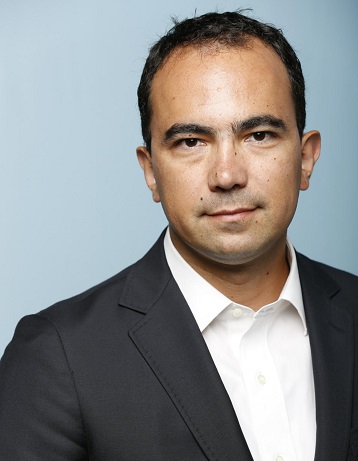
How would you describe the transformation taking place in the financial sector?
Digital Transformation has been taking place across the sector for some time, but COVID-19 has changed the game profoundly in multiple ways. Progress has been made in the last few months that would have taken years before COVID, not just in finance but across all sectors. Companies have found that change can be achieved 20-40 times faster than they had previously thought. With this progress, companies have gained a lot of experience of what works, and just as importantly, what doesn’t. In the finance sector, this experience has given Banks a more sophisticated understanding of the capabilities of AI. Examples of pure AI models completely failing and producing dangerously inaccurate forecasts are too numerous to count. The cause of these failures is obvious: forecasts based purely on how the data behaved last year and then it behaves differently. Banks are in a difficult situation where they have so many broken models in urgent need of fixing; it would take them many years using their current approach, yet the tools they hoped might accelerate the process have been shown not to work and would make the situation even worse!
How has COVID-19 changed your client’s priorities?
Our clients are coming to us with a more complex set of requirements. They want to accelerate their modelling, and they want genuinely explainable models which they can monitor in real-time, incorporating new experience and expert judgement when needed. COVID-19 has made expert judgement – the need to keep humans in the loop – a critical topic.
How have these changes impacted SPIN Analytics?
SPIN Analytics have benefitted because our solution is specifically designed to meet these requirements. RISKROBOT achieves massive acceleration, but it keeps humans in the loop at every stage. This is only possible because RISKROBOT is tailored and optimized at every stage for credit risk management, allowing us to incorporate all the context and detail which generic machine learning or other automation tools lack: the knowledge and experience of credit modellers, regulations and so on.
We’ve benefitted in other ways too. Everyone becoming much more familiar and comfortable with working online has allowed us to work with dozens of Banks across 3 continents in a way which wouldn’t have been possible previously. By building global regulations into our product we can deployed it in any market, but it would have been difficult for us to take full advantage of this scalability if all key meetings still had to be done face-to-face. We much prefer to invest in technology than air travel!
What’s happening with the arrival of fintech and big tech?
I think Big Tech and Fintech were both a bit optimistic about how quickly and easily they could solve the problems in the finance sector, at least initially. There are huge inefficiencies and areas where innovation lags behind other sectors, but this is often because there are complex or subtle challenges to solve. The initial optimism about how easily machine learning & neural networks could automate credit risk modelling is one example. The common idea that one vendor could solve all a Bank’s problems with one mega-system is another. Big Tech and Fintech have started to appreciate that they need each other: mega-solutions don’t work, modularity & specialization is key. Fintech needs Big Tech to build, deliver and support the infrastructure for this eco-system, and Big Tech needs Fintech to populate the eco-system with modular, specialized tools to deliver best-in-class capabilities in each area.
From your experiences working with the banking sector, which are the biggest hurdles traditional banks have to take when digitizing their business?
Our founders and management team all have significant experience in traditional Banks, so we understand and appreciate the many problems. Banks have always been biased towards large, established vendors, and there is no doubt this has slowed down change and constrained innovation. Fintechs find this very frustrating, but you have to appreciate what the banker you’re talking to has to go through: vendor risk assessments, data governance sign offs, budget applications. It is easy to assume your client has a massive support structure to delegate all this too, but they may not even know who to go to, these processes are always changing, and they have many competing priorities.
Managing their complexity to streamline their engagement with Fintechs is a big challenge for Banks, which they are working on. As a Fintech we see the difference it makes when a Bank has dedicated innovation or transformation teams supporting our contacts.
Fintechs can do more to help Banks get over these hurdles, and one way to do this is through partnerships: if a Bank is already working with a major cloud provider, having an established relationship with that cloud provider really helps.
Do you have any advice for people thinking about moving into the fintech industry?
Understand your client and understand the problem. Work out which part of the problem you can solve, do it better than anyone else and find partners who can help you deliver your part of the solution to the client.
Thanks for speaking with us, Panos. Finally, we have been asking all our interviewees one identical question – what key trends do you see emerging in 2021 in terms of opportunities, threats and investor focus when it comes to fintech?
Generic systems and pure AI have failed the COVID-19 test, but memories are short and understanding the details is hard so there is a big risk that the lesson isn’t learned. Meanwhile, COVID has broken all the risk models and it will take Banks years to fix them with their current approach. This is a bomb which has already exploded once, but it is still ticking.
The key challenge is how to integrate Expert Judgement into Digital Transformation and keep humans in the loop?
The trend is human augmentation, not naïve automation! We have many opportunities to take this approach in credit risk and beyond.
Prepared by,
Stanislava Angelova
/Editor at DiTech Media/











